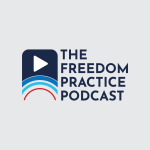

If you owned a million-dollar racehorse, you’d feed it the best diet, give it plenty of exercise, training, and ensure it had enough sleep. You’d take all necessary steps to protect a major income-generating investment.
Aren’t YOU that million-dollar racehorse?
I understand that your estate planning practice is going gangbusters due to proposed tax legislation and clients’ mortality concerns. You might be working sixty-hour weeks plus. Your clients are grumpy, and your staff is harried. There are not enough hours in the day or hands in the office to get the work done. At home, your spouse and children spend too much screen time conducting work or learning virtually. Everyone around you is on edge.
You’re racing the Kentucky Derby, Preakness and Belmont Stakes. Every. Single. Week.
Overwork and stress can seriously injure that racehorse. Take it from me. Two years ago, before the pandemic, and despite having recently competed in three Ironman, nine half-Ironman, and 40 other endurance races of various distances, I underwent an emergency triple bypass.
How did an Ironman triathlete end up in the operating room for life-saving heart surgery? Bad genes coupled with stress. Thankfully, we caught the problem before I had a heart attack. My cardiologist, who is also a fellow athlete and friend, told me to cut out as much stress from my life as possible. Six months after my surgery, while still recovering, the pandemic hit!
Last week I attended Brian Kurtz’ Titan Marketing mastermind class in Connecticut, where Melinda Cohan, founder of “The Coaches Console,” shared her insight into how to take care of yourself in stressful times. Cohan points out that when you’re under constant stress, you can’t focus well, your work-product suffers, as does your home life. You’re in reactionary mode, missing opportunities.
If your mantra is “I’m fine,” she says, then you’re probably not.
Cohan describes six aspects to self-care: Emotional, Practical, Physical, Mental, Social and Spiritual. She suggests proactively managing each.
Emotionally, it’s important to recognize where you are in any given moment. If your tank is on empty, then take time off to recharge. The number of major projects you take on is directly proportional to the free time you require to stay healthy. Therefore, more work should mean blocking out more free time. During your free time, don’t review emails, work on files, or make a neglected phone call. Cohan recognizes this is easier said than done, yet it’s vital to maintaining high energy, focused concentration, and excellent work product.
Decluttering a workspace is an example of practical self-care. Dozens of files piled high on a desk can be draining and discouraging.
Physically, get out and exercise, even if it’s a walk outdoors. As an aside, my psychologist made an enlightening point that I had turned my swimming, bicycling, and jogging hobbies into stressful competitions with ever-increasing triathlon distances. Training became a necessary obligation, a second full-time job. I’ve fully recovered from my surgery and am back to biking and swimming which I enjoy immensely, but I’ve quit racing.
Mentally, it’s important to engage in rituals that separate work from home life, and to maintain healthy boundaries between the two. Speaking of boundaries, just because your clients pay fees doesn’t translate into ownership of you or your team. Establish clear boundaries, with a pledge that those who violate them aren’t worth your time, no matter the revenue at stake.
Don’t underestimate the necessity of social wellness. Humans are social animals. That’s why it’s important to take part in purely fun, social groups and to also join coaching and master-mind organizations. Leaders often feel isolated. Engaging with social, in-person interaction with other leaders not only enhances learning but offers wisdom and comfort through shared experiences.
Finally, Cohan adds that attention to spiritual well-being reminds that you are part of a much larger universe. Whether it’s through organized religion or tending to an authentic sense of purpose, being part of something larger than you calms through perspective.
In sum, using a related farm analogy, for a long, healthy live, it can’t always be making hay when the sun shines. I share more in the podcast episode that accompanies this essay.
To your bigger future,

Craig R. Hersch
Florida Bar Board Certified Wills, Trusts & Estates Attorney, CPA
Senior Partner, The Sheppard Law Firm
Founder, The Freedom Practice®
PS – Speaking of wisdom through shared experience – have you signed up for our FREE 50-minute Practice Xcelerator Preview where you’ll learn how to dramatically increase your average estate planning fee? It’s this FRIDAY, SEPTEMBER 17th at noon Eastern time. I’ve successfully practiced estate planning law for 32 years in a boutique law firm. My goal is to help you succeed too! This short Zoom conference will be a first step to taking care of your racehorse!